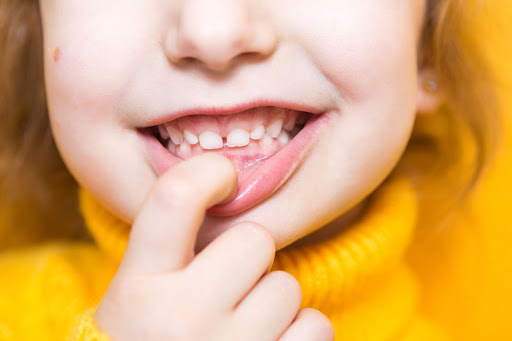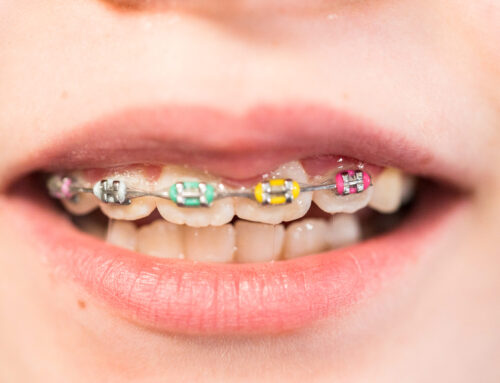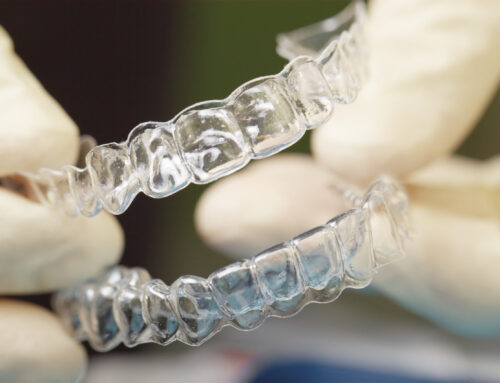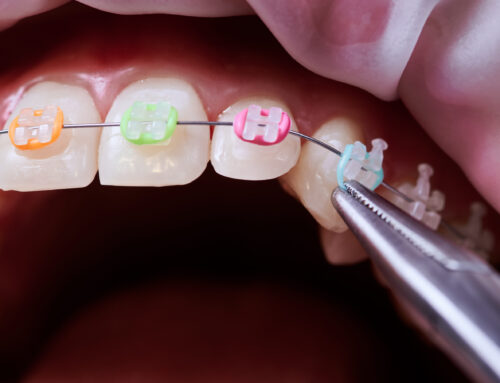Overbites are very common in adults and children of all ages. Habits like nail biting or thumb sucking can directly affect your teeth and oral health. Symptoms of overbites can range from discomfort when eating to speech issues. Correcting an overbite can be as simple as scheduling an appointment with Burke + Beckstrom Orthodontics. Knowing what causes an overbite and being aware of symptoms can help you evaluate when to consult with Dr. Burke and Dr. Beckstrom.
What is an overbite?
The term occlusion refers to the alignment of your teeth. A malocclusion is the term for a misaligned bite, also known as an overbite, crossbite, or underbite. An overbite is when your upper teeth extend too far beyond the lower ones. Overbites are very common in children and adults, though the treatment can vary depending on age. Your bite can be linked to genetics or childhood habits like nail biting. In most cases, overbites can be corrected with treatment. Going without treatment can cause tooth decay and other oral health issues.
What causes overbites?
Around 70% of children exhibit signs of having an overbite. Both habits and genetics can factor into your bite and other dental features. Having too much or too little room to accommodate teeth can affect the growth of teeth, which is directly related to your bite. Habits such as thumb sucking, the overuse of pacifiers or bottles, and nail-biting can cause the tongue to push on the back of teeth producing an overbite. Patients prone to grinding teeth while sleeping are also more likely to have an overbite.
Left untreated, overbites can cause significant complications, including irreparable damage to teeth from abnormal positions. Other symptoms caused by overbites include:
- Tooth decay or cavities
- Jaw Pain or TMJ
- Headaches
- Discomfort or pain while eating
- Trouble opening or closing your mouth
- Sleep apnea
- Speech issues
- Altered face structure
- Gum disease
How do you fix an overbite?
Following initial x-rays to determine your overbite type, Dr. Burke and Dr. Beckstrom will create an effective treatment plan. Children’s mouths are easier to adjust because they are still developing. The most common issue in children and teens is the crowding of teeth in the mouth. For many adults, the lack of preventative treatment earlier in life can worsen symptoms and make them more challenging to correct. Treatment can sometimes take up to 2 years.
Treatment in children has been favored over treatment in adults. Because children are still developing, it is easier to manipulate their jaw and teeth. In some cases, it might be necessary to remove baby teeth to allow adult teeth to grow in. Braces are a prominent treatment option. Braces slowly move teeth to correct the overbite and jaw. Following braces, retainers are used to help teeth stay in place.
Treating overbites in adults can be more complex than in children. Most preventative treatment is performed between ages seven and 18 however, there are still options for treatment as an adult. Braces move and adjust teeth which can correct minor overbites. In rare cases, teeth removal might be necessary to create more room in the jaw for teeth to shift. In severe cases, skeletal-type overbites can only be corrected with surgery.
Correct your smile
Leaving overbites untreated can cause symptoms such as pain or discomfort when eating and other issues. Overbites are common in adults and children. If you or your child are experiencing discomfort when eating or tend to have soreness in the mouth or jaw, you might be experiencing the adverse effects of an overbite. Knowing the signs of an overbite will help you identify when it might be time to schedule an appointment with our office. You can correct your overbite with the proper treatment and the help of Burke + Beckstrom Orthodontics.




